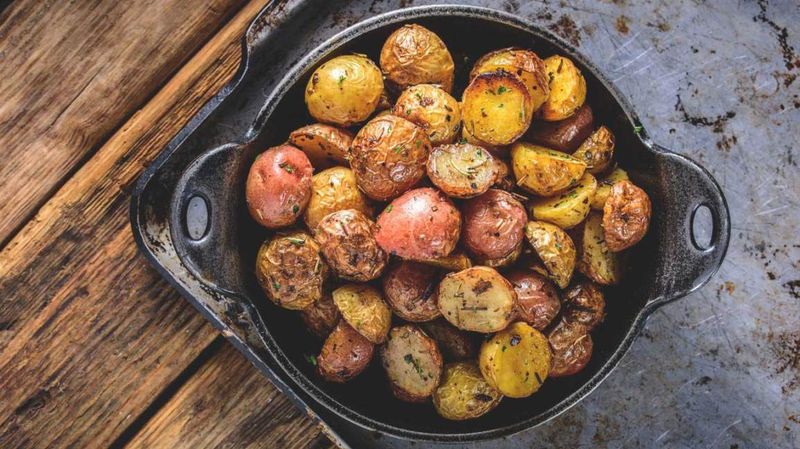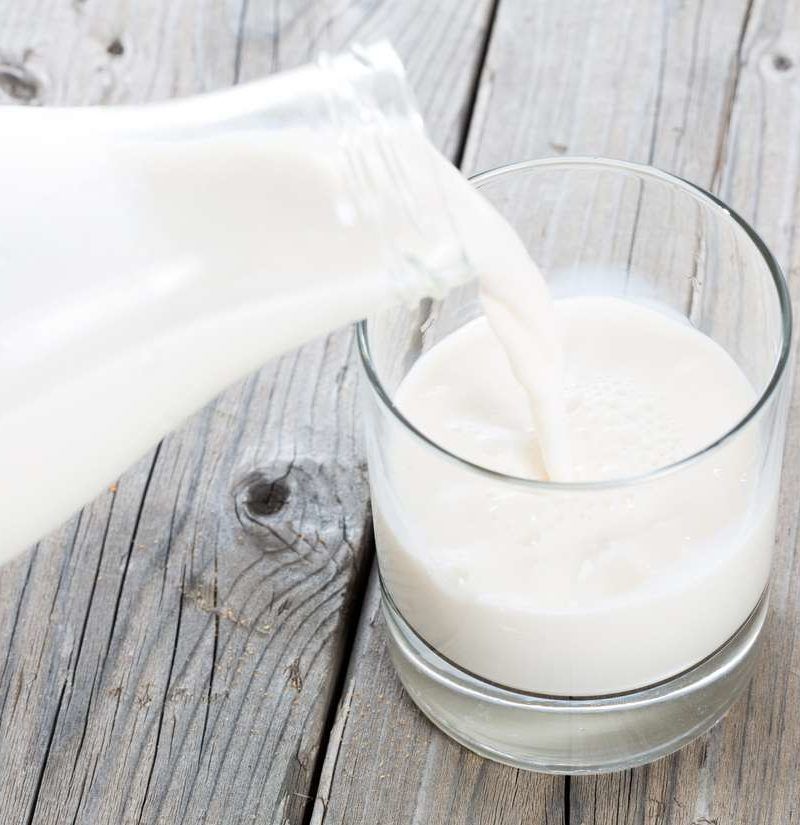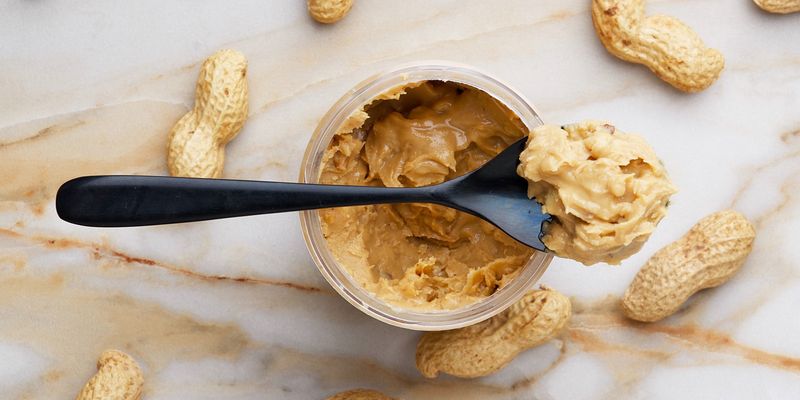Let’s face it—food guilt is everywhere. One minute you’re happily munching on a slice of peanut butter toast, and the next, someone’s warning you about fat content, carbs, or cholesterol.
Over the years, diet fads and nutrition headlines have convinced us to cast certain foods aside in the name of “eating clean.” But what if we told you that some of those so-called “bad” foods might actually be… good for you?
Yep, it turns out that not everything with a little fat, salt, or sugar deserves to be exiled from your plate. In fact, many of the items we’ve been trained to avoid are loaded with nutrients, heart-healthy benefits, and serious staying power when it comes to keeping you full and satisfied.
The trick? Looking past the outdated health myths and zooming in on what science—and common sense—are telling us now.
From the humble potato to full-fat dairy, this list is about setting the record straight. We’re not giving you a free pass to live off chocolate bars and creamy pasta dishes, but we are here to bust some myths and help you feel good about foods that have unfairly earned a bad rep.
So before you ditch your morning eggs or skip the popcorn at movie night, give this list a read. You might be surprised to find that your “guilty pleasures” aren’t so guilty after all—and might just be the nourishing, satisfying additions your diet’s been missing.
1. Potatoes
Often maligned, potatoes are a powerhouse of nutrients. Rich in potassium, they aid in balancing blood pressure. Keep the skins on, and you’ll also benefit from a generous dose of fiber and vitamin C. Many dismiss potatoes due to their carb content, but these carbs are complex, providing energy.
Surprisingly, potatoes have more potassium than bananas, making them an excellent addition to your diet. Baking or boiling them can preserve their nutrient profile. A versatile ingredient, they can be transformed into various dishes, from comforting mashed potatoes to crispy oven-baked fries.
2. Dark Chocolate
Craving something sweet? Dark chocolate might just be your health ally. Rich in antioxidants, it has flavonoids that support heart health.
Not all chocolate is created equal, though—the darker, the better. Opt for 70% cocoa or higher to maximize benefits. Surprisingly, dark chocolate can improve mood and cognitive function due to its serotonin
enhancing abilities.
Enjoying a small piece daily could even lower cholesterol levels and reduce inflammation. Pair it with a glass of red wine for a double dose of antioxidants.
3. Eggs
Once feared in diet circles for their cholesterol content, eggs have made a triumphant comeback. These oval wonders are packed with high-quality protein and essential nutrients like choline. Choline plays a crucial role in brain health, making eggs a smart breakfast choice.
They’re also incredibly versatile—scrambled, poached, or boiled, the options are endless.
Did you know that eggs contain all nine essential amino acids? This makes them a perfect protein source. Recent studies suggest that consuming eggs may not significantly impact heart disease risk for most people. Remember to enjoy them in moderation, as part of a balanced diet.
Whether you’re having them sunny-side-up or in an omelet, eggs are an egg-cellent choice for meals.
4. Full-Fat Dairy
Here’s a creamy revelation: full-fat dairy isn’t the villain it was once thought to be. In fact, it contains beneficial fats that can improve satiety and potentially aid in weight management.
These foods are rich in calcium, crucial for bone health. Recent studies indicate that full-fat dairy might even reduce the risk of type 2 diabetes. The key is moderation—enjoy your cheese, yogurt, and milk without overindulging.
5. Popcorn
When it comes to snacking, popcorn often gets a bad rap due to its buttery movie theater counterpart. However, when prepared at home, it’s a whole grain delight packed with fiber.
A single serving can satisfy hunger and keep you feeling full longer without too many calories. Drizzle with olive oil and sprinkle with herbs for a healthy twist.
Did you know that popcorn has more antioxidants than some fruits and vegetables? It’s true! This snack is not just for movie nights—it’s a crunchy, wholesome choice any time.
6. Peanut Butter
For many, peanut butter is a nostalgic treat reminiscent of childhood. Yet, beyond its creamy texture and delicious taste, it’s a nutritional powerhouse.
Packed with healthy fats and protein, it can keep hunger at bay and provide lasting energy. When selecting peanut butter, look for varieties without added sugar or oils. This spread can be a versatile addition to your meals, perfect for smoothies, toast, or even savory dishes.
7. Coffee
Morning rituals often include a cup of coffee, a beloved beverage that does more than just wake you up. Loaded with antioxidants, coffee can improve metabolism and brain function.
Studies suggest that moderate coffee consumption may lower the risk of several diseases, including Parkinson’s and Alzheimer’s. However, it’s important not to overdo it—stick to a couple of cups a day.
8. Red Meat
Red meat often finds itself on the naughty list, but when chosen wisely, it can be part of a healthy diet. Rich in iron and B vitamins, lean cuts of red meat provide essential nutrients that support muscle function and metabolism.
Opt for grass-fed varieties to benefit from higher omega-3 fatty acids. While moderation is key, including red meat in your meals can offer nutritional benefits.
9. Coconut Oil
Coconut oil’s reputation has swung from villain to hero in recent years. It contains medium-chain triglycerides (MCTs), which can boost metabolism and provide a quick energy source.
This oil is not only for cooking; it’s a versatile addition to your beauty and health regimen. Did you know that coconut oil has antimicrobial properties? This makes it great for oral health when used in oil pulling.
Whether you’re using it to sauté vegetables or as a natural moisturizer, coconut oil’s benefits are as diverse as they are appealing.
10. Pasta
Pasta, often dismissed as a carb-heavy indulgence, can be a nutritious part of your diet. Choose whole grain or legume-based varieties to enjoy complex carbohydrates and fiber.
These types offer sustained energy and can support digestive health. With countless shapes and flavors, pasta can be a base for a variety of wholesome dishes.
So, when you’re in the mood for Italian, remember that pasta can be part of a balanced meal, pairing perfectly with veggies and lean proteins.










Leave a comment